Detroit East Side Entrepreneurs Were Ready For Business. Then a Pandemic Hit.
Businesses in the burgeoning East Warren Corridor want to hire local workers and attract customers, but the pandemic has forced them to adapt to changing circumstances.
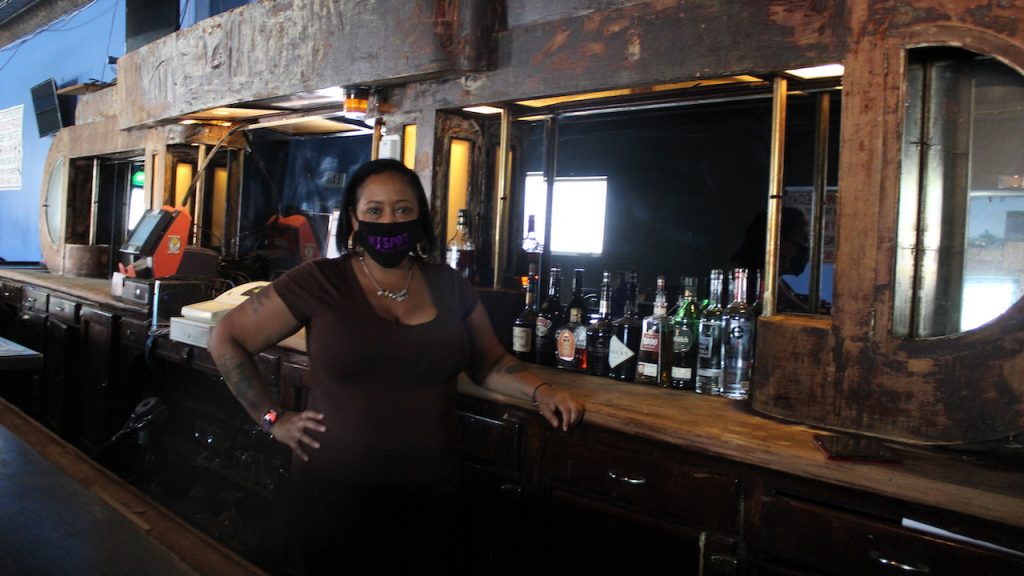
Some businesses in the developing East Warren Corridor had been open for less than a year when the COVID-19 pandemic forced them to shut-down. Now, they’re planning re-opening, and hoping that customers will support the Corridor’s mission of hiring locally and supporting the Eastside Detroit community.
Listen: Three businesses learning how to welcome customers safely.
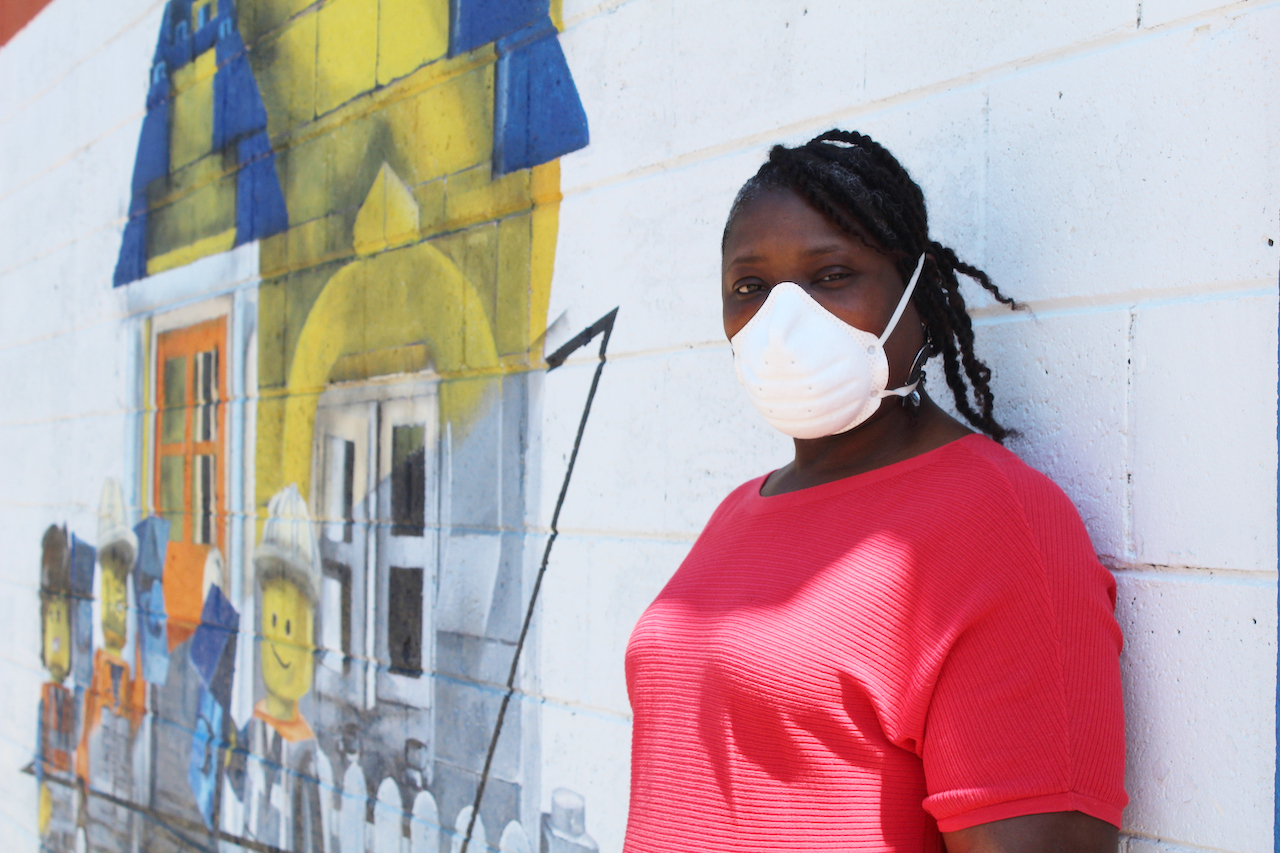
Denise Moore stands in a paved, empty lot. It’s wedged between the building she owns and a vacant restaurant. There’s a little graffiti and some plants sprouting up through cracks – but Moore says it’s a big improvement over what it looked like before she cleaned it up.
“There was furniture, there was garbage — like bags of garbage — lots of broken pieces of metal and things like that.”
Moore doesn’t own the lot, she says an absentee landlord does, but she cleaned it up so she can use the outside space for her business. Moore runs ZAB Cultural Collective, a contemporary art gallery, venue and co-working space. The business was just getting off the ground – hosting community meetings, art shows and open mic nights – when the pandemic hit.
“We had a lot of different things going on at one time. And it just stopped,” says Moore.
“There’s been a lot of really great cases of resiliency with businesses figuring out ways to adapt, to deliver, to really change the way that they do business.” — Joe Rashid, East Warren Development Corporation
Now she’s trying to figure out how she might be able to safely reopen.
While closed, Moore’s been working to put the art ZAB sells online, and to make this outdoor lot available for co-working, gallery shows and art projects. But she wants to take her time and not rush into reopening until it feels safe to do so. Moore’s well aware that COVID-19 has disproportionately infected communities of color around the country.
“We know people who’ve passed from this. It’s something that we take seriously here in Detroit,” says Moore. “A lot of people might not feel comfortable congregating, yet.”
“Ding! Ding! Ding!”
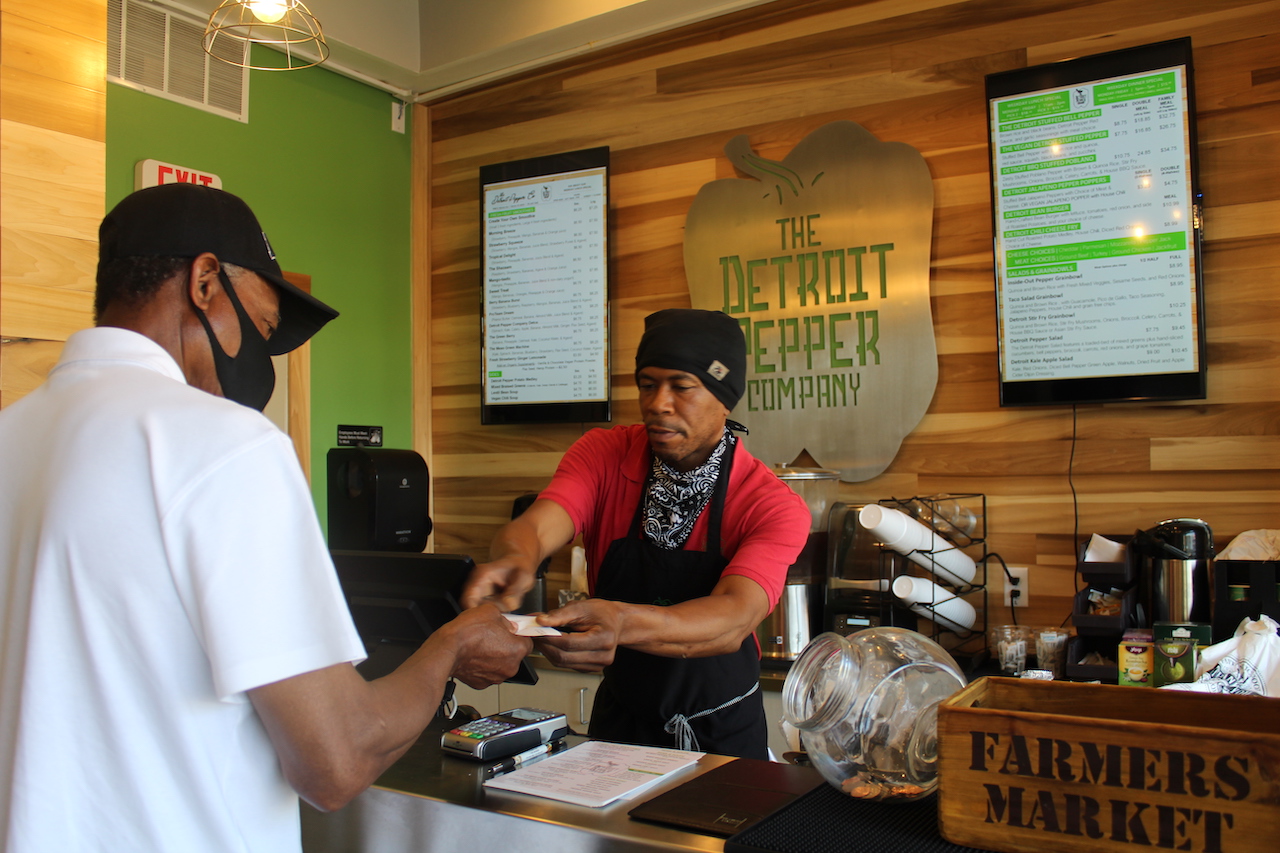
In many ways, the East Warren Corridor on the far east side of Detroit is like other business districts in the city.
There’s a smattering of auto repair shops, hair salons, carry-out restaurants and a hardware store. But the Corridor – which runs through the neighborhoods of Morningside, East English Village and Cornerstone Village – also has a bike shop, dentist offices and a craft cafe.
A couple of businesses, like ZAB, opened just prior to the pandemic. Plus there are others in the works.
A popular bakery – Terri’s Cakes – is currently operating online but looking for a brick-and-motor on East Warren Avenue. The Morningside Café is planning to have its grand opening later this summer. And Holy Moly Donut Shop – a small Detroit chain – actually opened up in the midst of the pandemic on June 20th.
“I’m from this community and I’ve always seen beauty in this area. I’ve never seen despair in my eyesight. I’ve always seen hope and life.” — Marlin Hughes, The Detroit Pepper Company
The Detroit Pepper Company opened up last September. It’s a carry-out restaurant that sells stuffed peppers, smoothies, grain bowls and more.
On a Tuesday morning in June, a senior wearing a sleek black mask walks into the shop. He lives nearby but this is his first time inside. The gentleman asks owner Marlin Hughes, “What got your hand in this type of business in a community like this?”
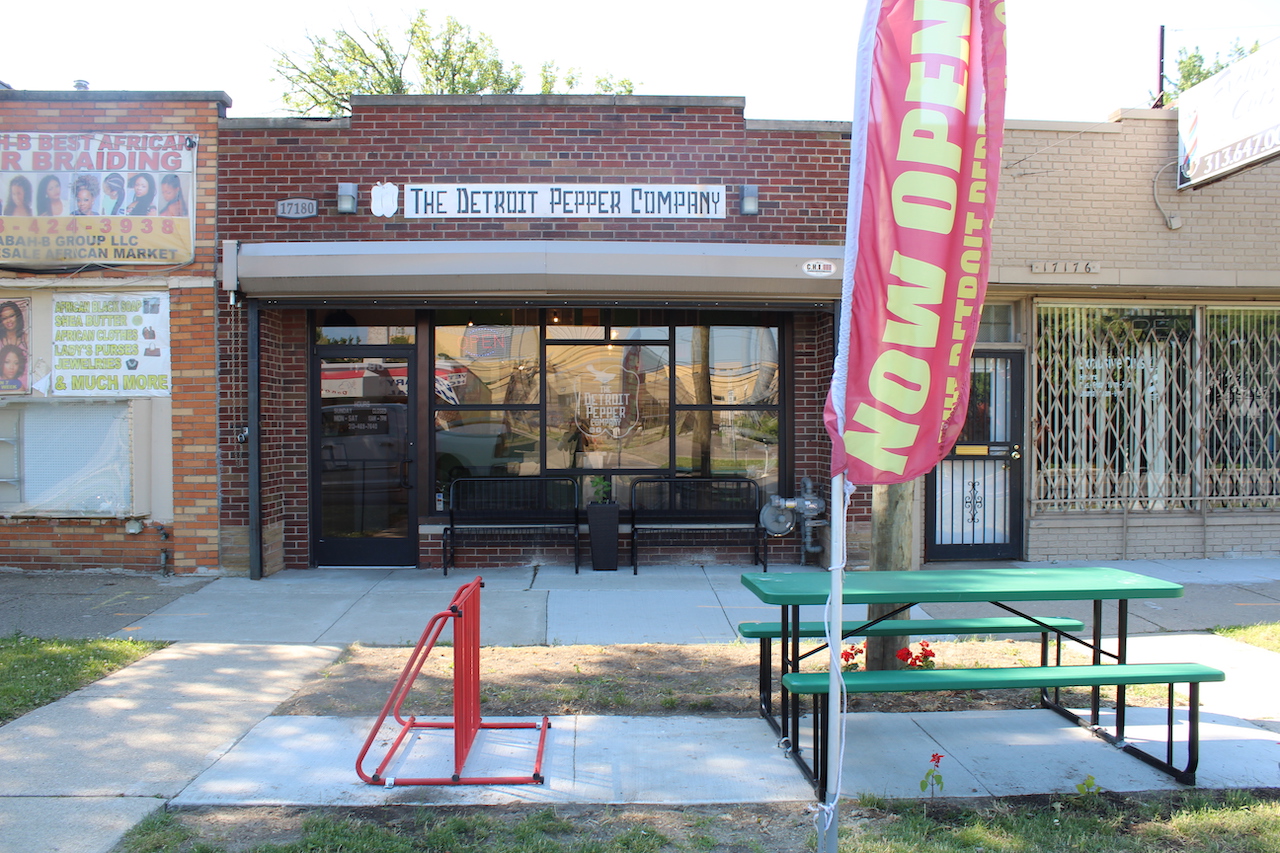
Hughes responds from behind the counter, with a black bandanna around his neck, “I’m from this community and I’ve always seen beauty in this area. I’ve never seen despair in my eyesight. I’ve always seen hope and life.”
Everything in the shop appears to be brand new, from the digital menu screens above the counter to the appliances in the kitchen.
When not working up front, Hughes preps food in the back. He stands over a shiny sink, washing a cornucopia of colored vegetables: orange sweet potatoes, yellow squash, green bell peppers.
Hughes says when the pandemic first hit he stayed open. But his customers stayed away.
“In the beginning it was rough because people were sheltered in their homes and it was difficult to really come up here because I was just watching the wind blow for a couple of days,” he recalls.
With few customers visiting, Hughes shut down for a week around Easter. When he opened back up, something had changed. People started coming back in.
“And so my door bell is constantly ‘ding-ding-ding!’, the phone is ringing constantly. And I’ve been not able to keep up ever since,” says Hughes.
He runs the shop by himself, although he sometimes gets help from his family. Before the pandemic, Hughes had a couple employees but he says none of them have felt comfortable coming back yet.
“A lot of the people that I had were unsure about this disease and they didn’t want to bring anything back to their family so they chose to stay away until further notice,” explains Hughes.
(Re)opening For Business
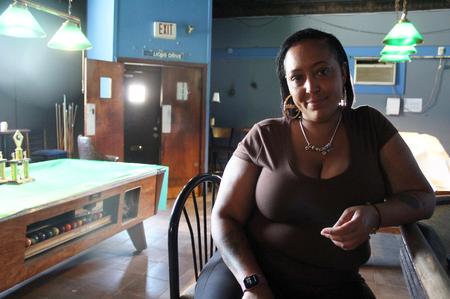
Up the street, Jeanie Hughes (no relation to Marlin Hughes) is preparing to re-open her neighborhood bar: The J Spot. Unlike The Detroit Pepper Company and ZAB, The J Spot has been around for almost 10 years.
“I always wanted to own my business, something I could enjoy with my neighbors and my friends, and I found this bar and it was perfect for me,” says Hughes.
“We’re going to set up outside so customers can sit outside, if they prefer.” — Jeanie Hughes, The J Spot
Hughes says the building is more than 100 years old. She’s been using the closure caused by the pandemic to re-varnish the antique oak bar, repair the floors, and install glass block windows. And, recently, she’s been using the time to prepare to reopen.
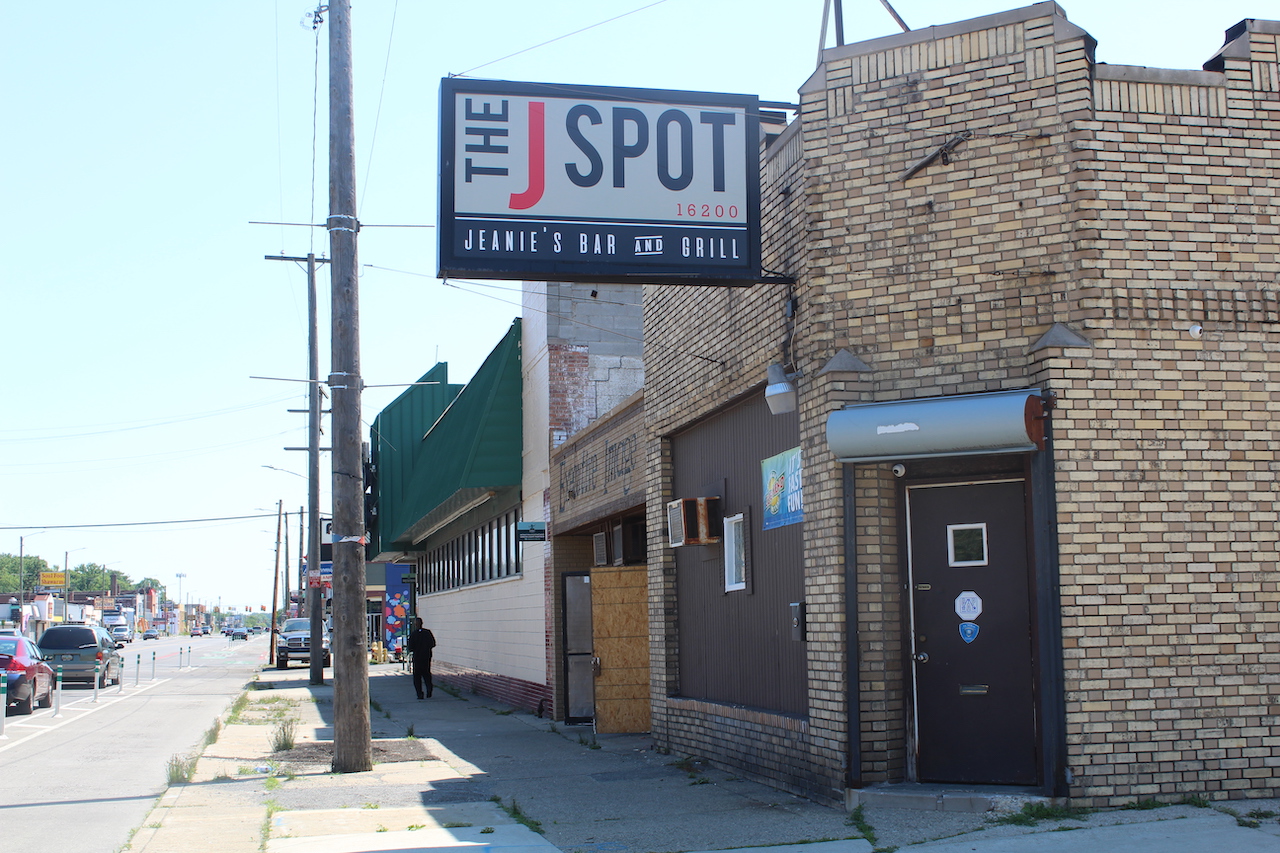
“We have ordered disposable cups with lids and straws for our customers so they don’t have to drink out of glassware, they can feel safe,” says Hughes. “We’re going to set up outside so customers can sit outside, if they prefer.”
Hughes says she also received a special license from the city to offer alcoholic drinks to-go. The carry-out beverage menu will feature custom seasonal mixed drinks, including one of Hughes’ own creations, something called “The Bomb Pop.”
“It tastes like tropical punch Kool Aid,” Hughes explains.
The plan is for the J Spot to reopen on Wednesday, July 1.
“There’s been a lot of really great cases of resiliency that you’ve seen, with businesses figuring out ways to adapt, to deliver, to really change the way that they do business, to be able to offer the services that they want to provide to the community,” says Joe Rashid, the Executive Director of East Warren Development Corporation. He’s been working with businesses in the area to make sure they have what they need during the pandemic.
While businesses, and even the Development Corporation, have been doing a good job of pivoting, Rashid is eager to focus efforts back on some of the organization’s big picture goals.
“We want to create a corridor where everyone feels welcome, where the businesses actually reflect the community they serve, where we’re actually hiring from our local community and really trying to figure out ways to build equity into the entire process,” says Rashid.
Corrected, July 2: The original version of this article misidentified the owner of The J Spot in the text and audio of this story. It is Jeanie Hughes. 101.9 WDET regrets the error.
Trusted, accurate, up-to-date
WDET is here to keep you informed on essential information, news and resources related to COVID-19.
This is a stressful, insecure time for many. So it’s more important than ever for you, our listeners and readers, who are able to donate to keep supporting WDET’s mission. Please make a gift today.
